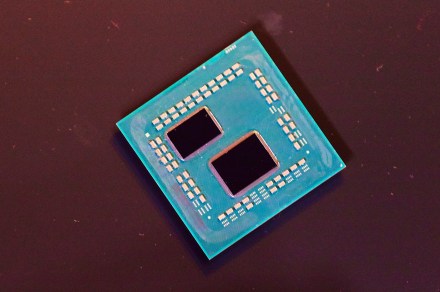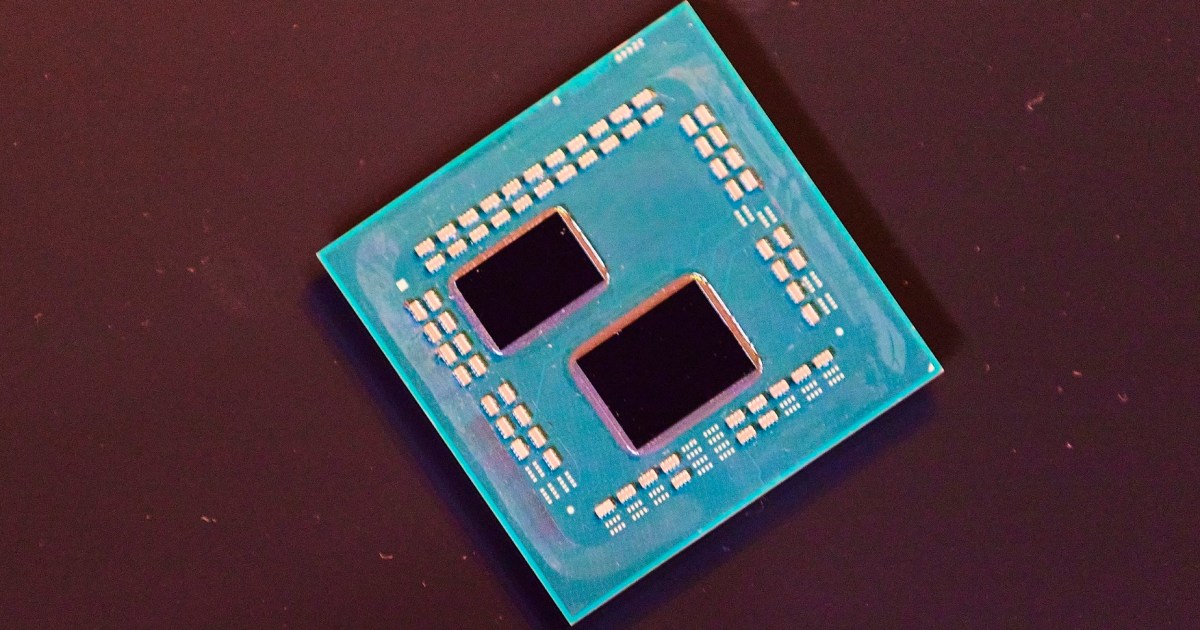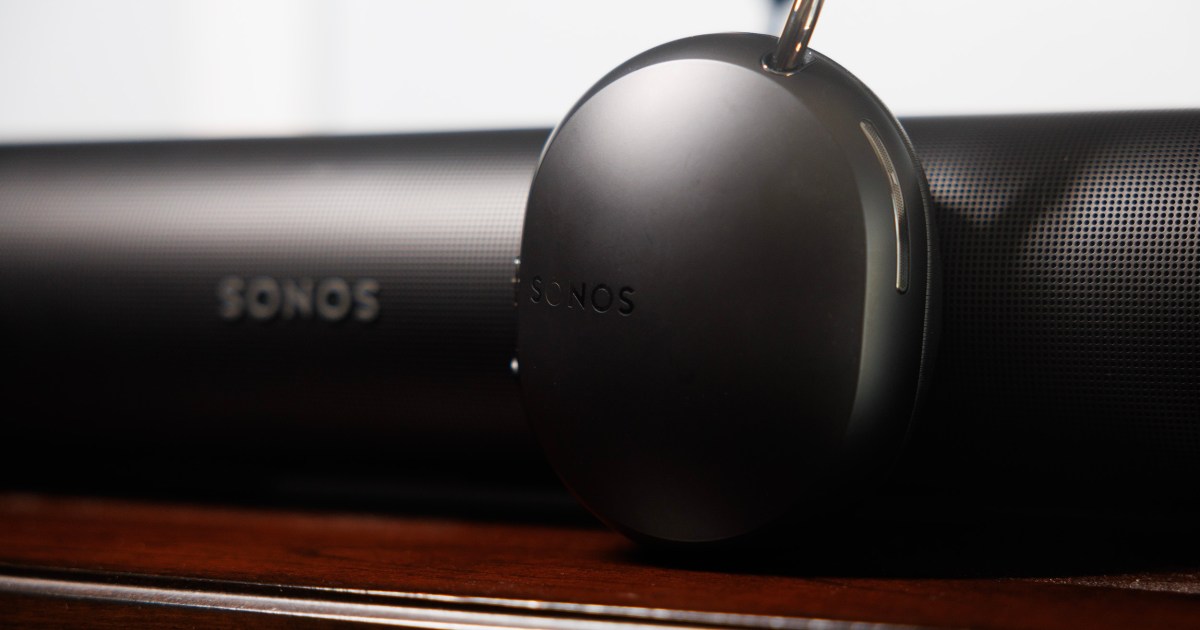
The CPU (Central Processing Unit, or simply “processor”) is arguably the most important component in a computer, perhaps only second to the GPU if you’re a gamer. However, upgrading to the best processor isn’t always straightforward; it can be difficult to choose the right time to upgrade and the right CPU to upgrade to, because that can often entail swapping out the motherboard and even the memory, too. Not every application is going to improve from a CPU upgrade, and you need to check your existing cooler is compatible as well.
There are, however, some general rules when it comes to CPUs that can help you determine whether or not an upgrade is really worth your time and money.
When to upgrade your CPU for gaming
Shutterstock/Gorodenkoff
CPUs and how they impact gaming performance is a surprisingly complicated topic. With GPUs, we expect more frames and/or better-looking graphics when there are more cores, higher clock speeds, and better memory, but CPUs are a different beast. In fact, under the right conditions (depending on the game and the settings), a big CPU upgrade might not improve performance at all, and that’s not exactly rare.
Get your weekly teardown of the tech behind PC gaming
Generally speaking, most CPUs made within the past five years with at least six cores can do at least 60 to 120 frames per second in most games when paired with a decent graphics card, but beyond that point, some CPUs do better than others. The best way to check whether or not you’re limited by your CPU in games is to check GPU usage through a resource monitor like Task Manager or MSI Afterburner. If your GPU is doing most of the heavy lifting in a game, then you should see its usage close to 100%. The lower that GPU usage is, the less dependent the game is on the GPU, and the more likely performance is limited by your CPU instead.
This is often known as a CPU bottleneck, and it’s exactly where a CPU upgrade can help.
That being said, it’s not always worth upgrading if your GPU usage isn’t perfect. If your GPU usage is around 90%, you’d barely get any more frames from a better gaming CPU. However, if your usage is closer to 70% or even lower, there’s quite a bit of performance being left on the table if you feel like the frame rate you’re getting is too low. Upgrading your CPU might help it speed through any bottlenecks on its end, letting you make the most of your GPU’s power.
But before you pull the trigger and upgrade, you should make sure what you’re upgrading to is a better gaming CPU. We highly recommend checking out reviews, but first, here are a few extra rules that are worth taking into consideration:
You don’t need more than six cores for good gaming performance. It is true that the fastest gaming CPUs have more than six cores, but it’s not just the number of cores that make modern processors great for gaming.
RAM speed can impact gaming performance, but usually, its impact isn’t very significant, so only consider upgrading your RAM as well if you have too little or it’s particularly slow.
CPUs with newer architectures are usually better at gaming. Ensure that any CPU you upgrade to is from the last two generations at the oldest, so Intel 11th and 12th generation or AMD Ryzen 3000 or 5000.
Within the same architectural family (like if you’re comparing two different Ryzen 5000 CPUs), CPUs with higher clock speeds usually have better gaming performance.
CPUs with more cache are faster, and this is another major indicator of gaming performance. For example, the Ryzen 7 5800X3D is one of the fastest gaming CPUs thanks to its massive L3 cache, the largest of any mainstream CPU.
When to upgrade your CPU for content creation
Apple
There are quite a few kinds of applications under the umbrella of “content creation,” but most of these applications fall into two categories: those that benefit from more cores and those that benefit from a single fast core. Unlike with games, it’s pretty easy to tell whether or not a CPU upgrade is going to be worthwhile.
Most content-creation applications, especially video editing and rendering programs, benefit from having lots of cores. It’s pretty simple to check whether or not a given application would benefit from more cores. Check your CPU usage when performing a task by opening up a resource monitor like Task Manager or MSI Afterburner. If CPU usage is close to 100%, then you would likely benefit from having a CPU with more cores. Most applications have a limit to how many cores they can use, which you should research before buying a 32-core CPU for a program that can only use 16.
Then there’s software that only uses one or two cores, which means CPUs with high single-threaded performance are the best. However, most applications that only use a single core or thread are very simple and perform well on basically any modern CPU. You might consider upgrading for better single-threaded performance if, for instance, you often work on a really big spreadsheet in Excel, which can be a challenging workload for some CPUs.
Another thing to consider when it comes to content creation is whether or not a faster CPU is really what you need. Sometimes, other components are more important. For example, while you can use a CPU to stream on OBS, it’s arguably better to use a modern GPU with an up-to-date encoder, as CPU encoding is extremely intensive and could actually have worse quality depending on the CPU.
You might also be bottlenecked by other components. To see what your bottlenecks are, again, open up a resource monitor while your PC is working and check to see what’s at 100%. High RAM usage is sometimes an indicator that you don’t have enough RAM. High disk usage is usually not a great sign either and may signal that you could benefit from a faster drive.
How to choose a new CPU
If you’ve decided you should upgrade, then the next thing to do is to figure out what to upgrade to. You can’t just pick and choose CPUs because you need to have a compatible motherboard and the right kind of RAM. If your motherboard is compatible with many different CPUs that are worth upgrading to, then you only need to worry about the CPU. If not, then you’d have to get a new motherboard and potentially new RAM too.
There are so many other factors (such as whether you should overclock your new CPU) to consider that there’s just not enough room in this article to talk about it.
For more information, check out our CPU buying guide.
https://www.digitaltrends.com/computing/when-should-you-upgrade-your-cpu/
News
Ugandan Citizen Abducted, Held in Secret Detention for Three Months, Sparks Outrage and Calls for Justice

A disturbing new case of unlawful detention has surfaced, highlighting the ongoing human rights crisis in Uganda. A Ugandan citizen was reportedly abducted and held in a secret facility, known as a “safe house,” for three months, only to be released without charge or explanation. This incident, reported by NTV Uganda, has sparked widespread condemnation and renewed calls for accountability regarding human rights abuses in the country.
While the details surrounding the abduction remain unclear, reports indicate that the individual was taken without due process and held incommunicado—an action that has long been condemned by human rights organizations. The victim’s release, with no charges filed and no clear justification, has angered activists and citizens, who view this as yet another case of egregious abuse of power by the state.
“This is a recurring pattern,” said one human rights activist. “Abductions, secret detentions, and unexplained releases have become all too common in Uganda. These acts violate fundamental human rights and erode public trust in the justice system.”
The use of “safe houses,” unregistered detention facilities reportedly operated by security forces, has been a focal point in numerous allegations of torture and illegal imprisonment. Despite repeated calls from both local and international organizations for their closure and accountability for those involved, little action has been taken to address these violations.
This case underscores the urgent need for reform within Uganda’s security apparatus and greater accountability for human rights abuses. Observers hope that drawing attention to these injustices will spur concrete action to bring those responsible to justice and ensure the protection of basic human rights.
As frustration mounts, calls for both domestic and international pressure to hold the government accountable for such crimes grow louder. “One day, there must be accountability for all these crimes against our people,” stated one social media user, reflecting the sentiments of many Ugandans.
News
NUP Gathering Disrupted: Kyagulanyi Alleges Security Force Harassment and Arrests

National Unity Platform (NUP) President Robert Kyagulanyi has accused Ugandan security forces of using excessive force to disrupt a planned NUP gathering. The allegations were detailed in a statement shared on Twitter, following an event held to honor children of NUP supporters who were killed, disappeared, or detained for their political beliefs.
According to Kyagulanyi, security personnel, under the command of an officer identified as Asiimwe, carried out a preemptive operation early in the morning upon learning of the NUP’s plans. The forces allegedly stormed the premises, arrested workers, and deployed tear gas to disperse those present.
“The criminals under the command of one Asiimwe deployed early morning, arrested our workers, and threw tear gas into our premises. They’ve cordoned off the premises and blocked all people from accessing the place,” Kyagulanyi wrote.
Among those reportedly arrested were Saava Peter, Mudenya Samson, and Turyasingura Samson. Kyagulanyi claimed the detained workers were subjected to beatings and interrogated about their political affiliations, with security operatives labeling them as terrorists.
“These JATT operatives asked the workers who they support politically, branding them terrorists and criminals—their only crime being that they work with us. You can imagine the indignity!” Kyagulanyi lamented.
This incident adds to the growing tension in Uganda’s political climate, where opposition parties frequently accuse the government of stifling dissent. Despite the challenges, Kyagulanyi ended his statement with a message of defiance and optimism, proclaiming, “UGANDA WILL BE FREE.”
NUP Gathering Disrupted: Kyagulanyi Alleges Security Force Harassment and Arrests
News
Sudan Demands Apology from Uganda Over Army Chief Muhoozi Kainerugaba’s Threat to Invade Khartoum

Sudan has demanded an official apology from Uganda over “offensive and dangerous” comments made by the chief of Uganda army staff, who threated to invade Khartoum, the Sudan Tribune has reported.
General Muhoozi Kainerugaba, son of Ugandan President Yoweri Museveni and CDF of the Ugandan army, posted two comments on the X platform on Tuesday in which he threatened “to capture Khartoum” with the support of the US President elect Donald Trump after he takes office. The posts were deleted later.
“The government of Sudan demands and official apology from the Ugandan government for the offensive and dangerous comments of the army commander,” Sudan’s foreign ministry said in a statement that the Sudan Tribune said it has seen.
Sudan Demands Apology from Uganda Over Army Chief Muhoozi Kainerugaba’s Threat to Invade Khartoum







